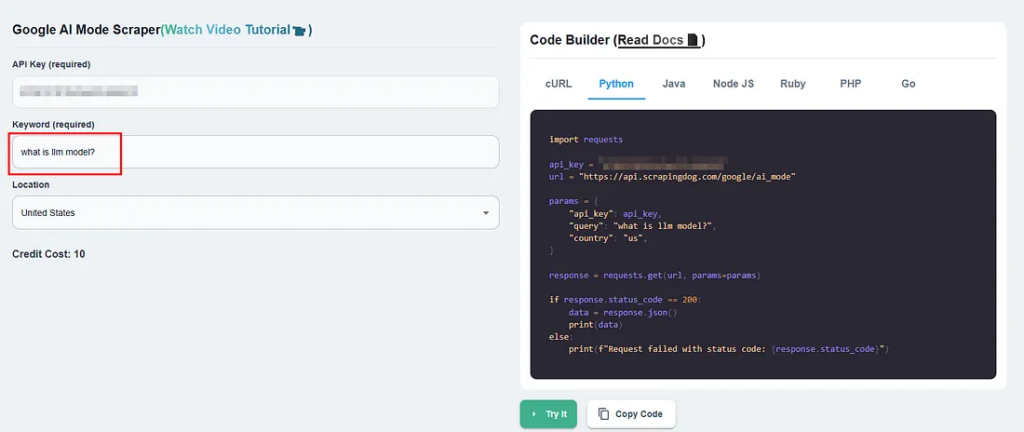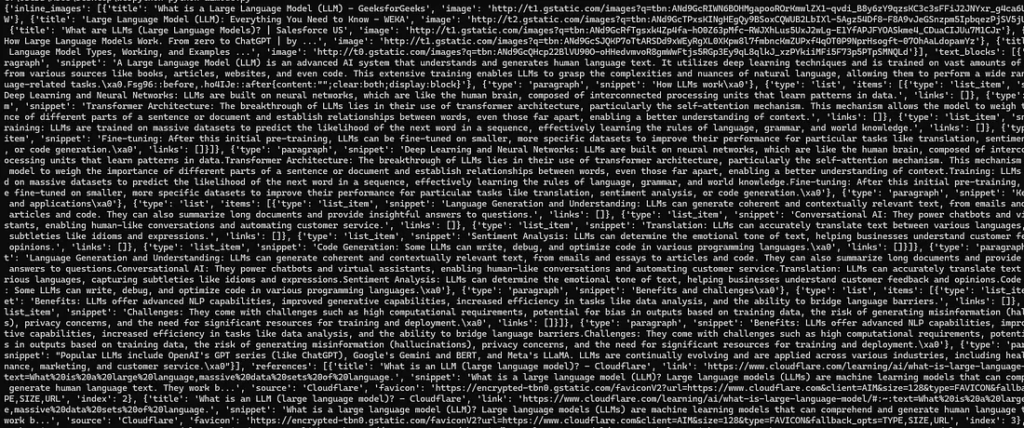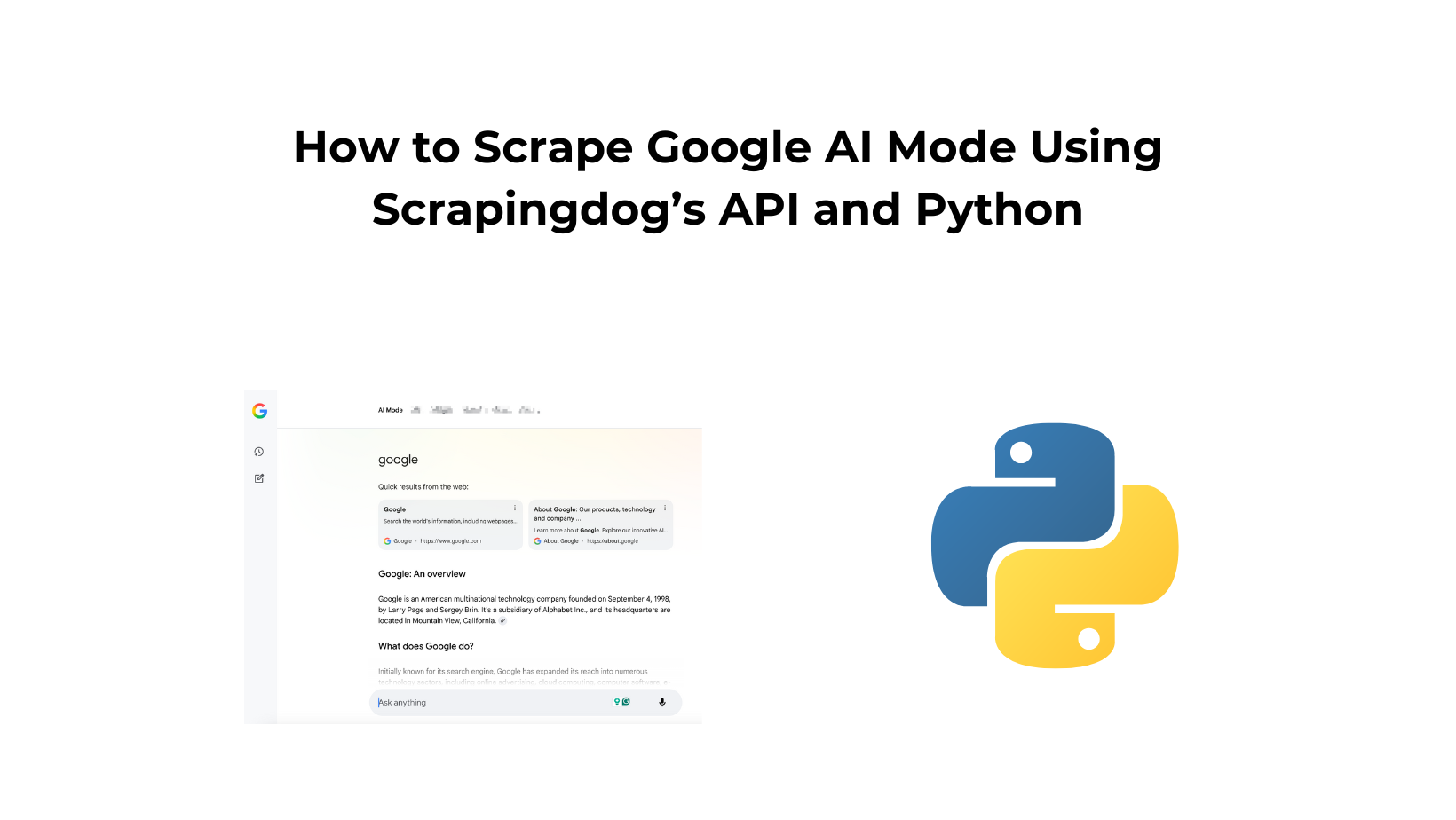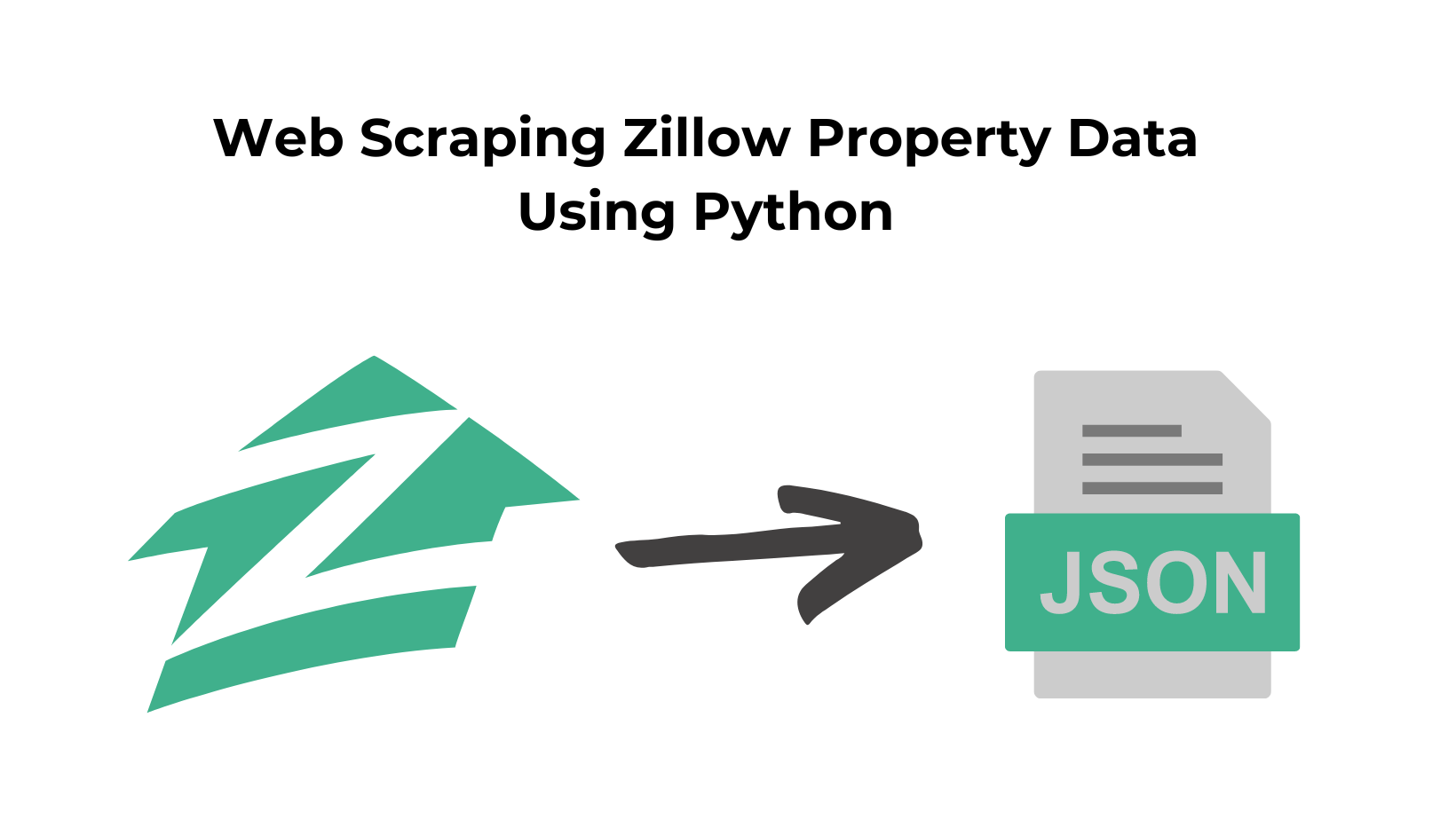TL;DR
- Scrapingdog’s Google AI Mode API lets you capture Google’s AI answers; sign-up includes 1 000 free credits.
- Python example uses
requestswithapi_key,query,countryand returns clean JSON. - Use cases: SEO analysis, competitor tracking, content research, market intel.
- Includes a ready-to-run snippet and a public demo link for quick testing.
Google’s recent integration of generative AI into search results, known as “AI mode,” provides summarized answers directly on the search page. For businesses, SEOs, and data analysts, scraping these AI-generated answers can unlock valuable insights, track content visibility, and monitor shifts in Google’s approach.
This article provides a clear, step-by-step guide on how to utilize Scrapingdog’s Google AI mode scraper API with Python to scrape Google’s AI-generated search results efficiently.
Why Scrape Google’s AI Results?
- SEO Analysis- Understand how your content is reflected in Google’s AI summaries.
- Competitor Monitoring- Keep track of competitor presence in AI-generated answers.
- Content Research- Gather structured answers to feed AI content creation and research processes.
- Market Intelligence- Gain insights into trends and shifts in AI-based search behaviors.
Requirements
I hope you have already installed Python on your computer; if not, then you can install it from here. Next, create a folder to keep all your project files. Let’s name it scraper.
mkdir scraper
Now, inside this folder, install the requests library. Using this library, we are going to make a GET request to the host website.
pip install requests
Create a Python file by any name you like. I am naming the file as aimode.py.
Now, sign up for the free pack on Scrapingdog. You’ll get 1,000 free credits to test any API.
Scraping Google AI Results with Python and Scrapingdog
Once you are signed up, you will be redirected to your dashboard, which looks like this.

I have passed a sample query, What is llm model? and instantly, a Python code appeared on the right. Just copy this and run it in your Python environment.
import requests
api_key = "your-api-key"
url = "https://api.scrapingdog.com/google/ai_mode"
params = {
"api_key": api_key,
"query": "what is llm model?",
"country": "us",
}
response = requests.get(url, params=params)
if response.status_code == 200:
data = response.json()
print(data)
else:
print(f"Request failed with status code: {response.status_code}")
The code is pretty simple, but let me explain to you how it works.
- Imports the
requests library to make HTTP requests. - Set your Scrapingdog API key and the endpoint URL for scraping Google AI mode results.
- We have defined the required parameters.
- Sends a GET request to the Scrapingdog AI Mode Scraper API with the set parameters.
- If the request is successful (status code 200), it prints the parsed JSON data (Google’s AI response).
- If the request fails, it prints an error message with the HTTP status code.
Let’s execute this script and see the results.

I got a beautiful JSON response from the API. Just like this, you can scrape answers from Google AI mode with the help of Scrapingdog for any number of queries.
If you want to understand more about this API, then you can refer to this video.
Here is the public link to the tool that you can try with your API KEY.
Here are 5 key takeaways:
Google AI Mode shows AI-generated summaries and answers instead of just traditional search links.
Scraping these results helps track how topics, brands, or keywords appear in AI answers.
The blog shows a simple Python method to fetch AI Mode data using an API.
Using an API avoids proxy rotation, blocking issues, and manual parsing.
AI Mode data can support SEO research, competitor monitoring, and content analysis.
Conclusion
Scraping Google’s AI mode doesn’t need to be complicated. With Scrapingdog’s specialized Google AI scraping endpoint and Python, you can effortlessly capture valuable AI-generated insights at scale.
Whether you’re monitoring brand visibility, performing competitive research, or generating structured data for content creation, Scrapingdog provides a reliable, scalable solution. Get started today and elevate your data scraping workflows with powerful, actionable insights.
FAQ (Frequently Asked Questions)
1. How can I scrape Google AI Mode data?
You can use web scraping APIs like Scrapingdog or SerpApi to collect AI Mode results. These APIs return structured data, including response text, citations etc, making it easy to analyze and integrate into reports.
2. Is it legal to scrape Google AI Mode?
Yes, scraping publicly available AI Mode data for research or business insights is generally legal, as long as you follow local regulations and the API provider’s terms of use.
3. Are there free options to test the Google AI Mode API?
Yes, many APIs like SerpApi and Scrapingdog offer free trials or limited free plans, allowing you to test AI Mode scraping before subscribing to a paid plan


